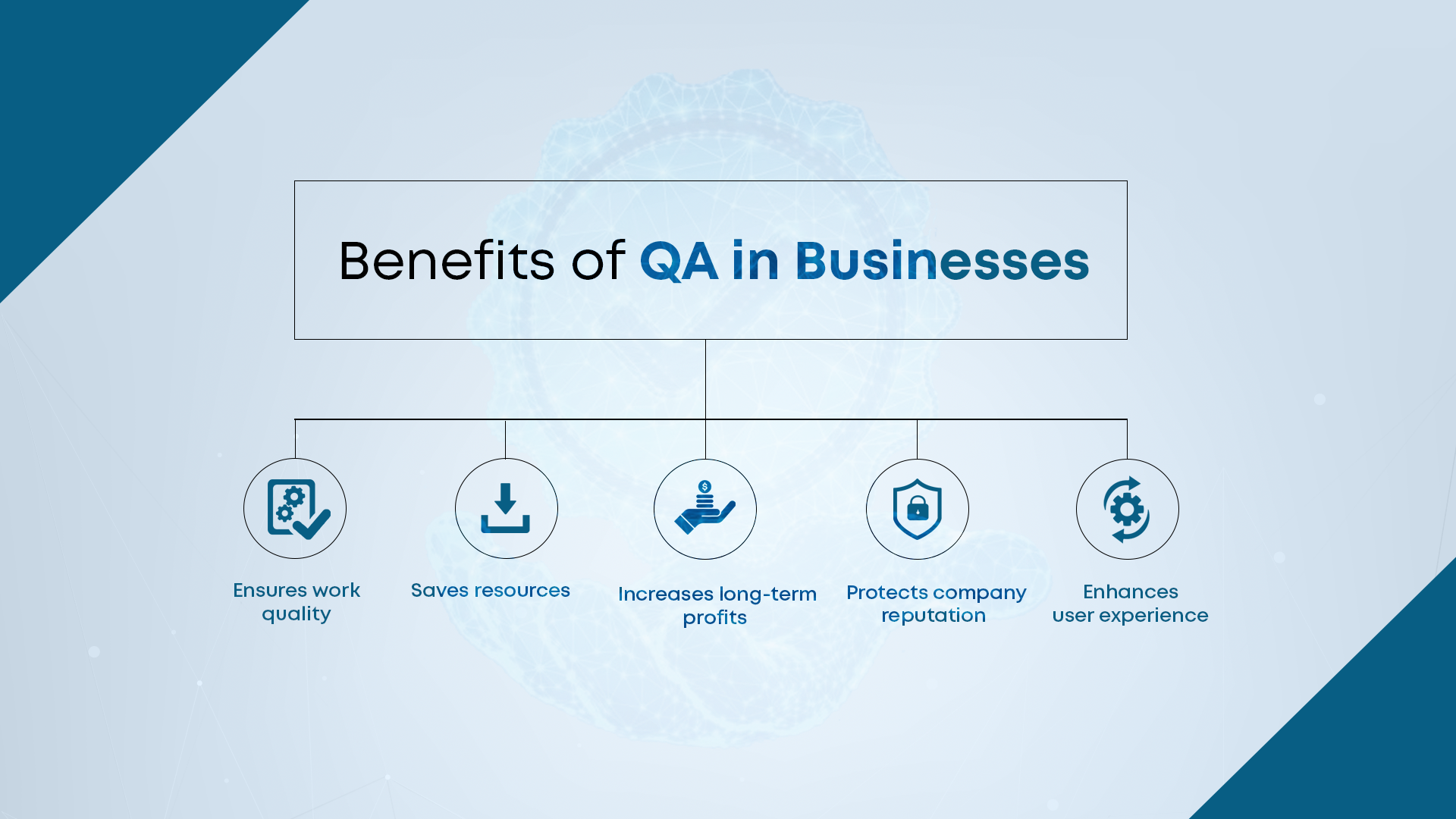Nowadays, businesses across various industries are increasingly seeking high-quality products and services to improve their customers’ experiences. To achieve this, every business needs reliable, scalable, and top-notch products or services. Quality assurance (QA) is the process used to ensure that the product or service meets the real business needs and achieves the desired goals by evaluating its quality. Implementing QA is a successful approach to ensuring the standard of products and services, which in turn saves costs, time, and effort by preventing errors. QA can also identify reasons for customer churn and provide solutions to prevent it.
Utilizing QA services is an affordable way to boost your brand’s reputation, and it is now essential for all types of businesses, including startups and remote businesses. According to Wikipedia, ISO 9000 defines QA as a facet of quality management that focuses on providing assurance that quality requirements will be met. To avoid confusion, let us first define what Quality Assurance entails.
What is Quality Assurance (QA)?
Quality Assurance refers to a systematic approach that verifies if a product or service meets established criteria. Its primary goal is to enhance the effectiveness and efficiency of the development process in line with quality standards.
Benefits of QA in Businesses
Quality assurance (QA) offers a wide range of benefits that are essential for all types of businesses. Let’s take a look at these advantages:

1. Ensures work quality: By monitoring the process and methods, QA ensures that products and services meet the required standards. As a process-oriented activity that starts at the beginning of a project, QA guarantees that the final product or service satisfies customer requirements and expectations.
2. Saves resources: Early implementation of QA helps prevent errors, resulting in significant time savings and reduced costs. It is more cost-effective to invest in prevention rather than correction in the long term.
3. Increases long-term profits: By preventing the waste of resources, quality assurance helps businesses make more money. Additionally, it enhances the company’s competitiveness in the market since clients are willing to pay more for higher quality products.
4. Protects company reputation: A business is judged based on the quality of the products it releases in the market. If products fail to meet customer expectations, it can damage the business’s reputation.
5. Enhances user experience: QA is essential for maintaining usability and a strong user experience. Since numerous quality issues affect the overall user experience, third-party user experience evaluations help businesses improve their products and services. Additionally, unbiased third-party evaluations can aid in preventing biases.
How QA Can Help to Grow Small Businesses or Startups?
The success of any business, especially small enterprises or startups, depends on the quality of the products and services it provides. To ensure that clients have a positive perception of their brand, business owners must invest in a robust QA system. By doing so, they can acquire accurate and effective outcomes that enhance client experiences, support business growth, and establish a strong reputation. To ensure customer satisfaction, QA can help businesses identify and resolve end-users’ issues. Furthermore, closely monitoring employee performance ensures that established standards are followed. Ultimately, businesses should prioritize quality over quantity, which can be achieved by utilizing QA.
In conclusion, quality assurance has a broad definition and is implemented in various ways by different businesses. However, every company must have a successful QA system as clients evaluate businesses based on their products and services. The primary objectives of implementing QA are to achieve business stability, improve process outcomes, and enhance customer satisfaction. By ensuring the integrity of products and services and reducing the likelihood of errors, QA ensures that everything leaving the business is worthy of customers’ money and time. Therefore, QA is undoubtedly essential to the growth and expansion of any business.
 Finland
Finland Bangladesh
Bangladesh
